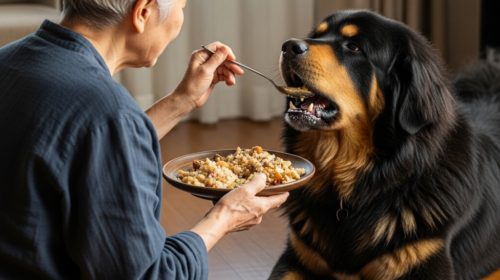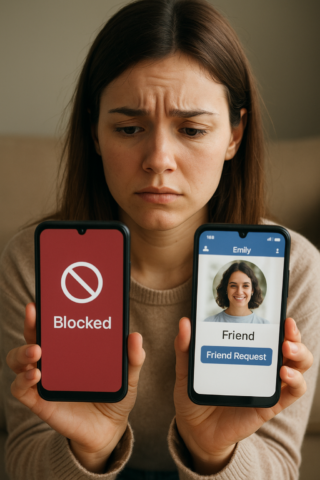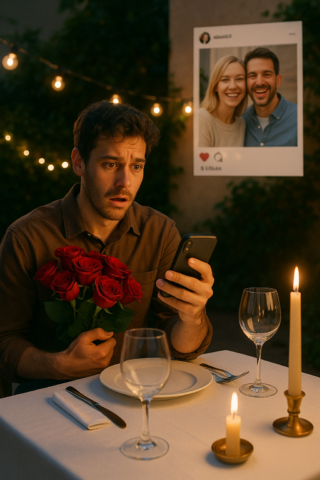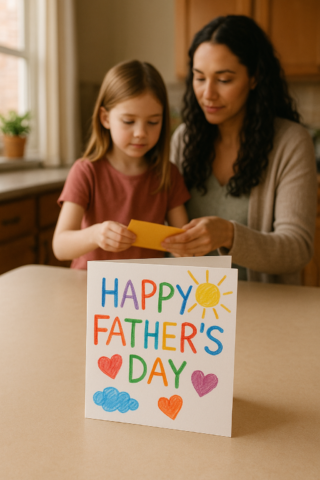It all began the day my grandad, Elias, settled into our home. We’d transformed the sunroom into his private space, placing a cozy armchair by the window and filling a bookshelf with his cherished adventure novels and family photo albums. For that initial week, he was mostly quiet, offering only nods and moving around the house with the careful, measured steps of someone navigating unfamiliar terrain.
He’d suffered a minor health setback a couple of months prior, and his doctor had emphasized the importance of routine and engagement. Keep his mind active. Talk with him. Involve him. It proved to be a tougher task than I’d anticipated.
Grandad Elias wasn’t naturally chatty. He was a man of the old guard, the kind who’d meticulously carve bits of timber into nothing simply to occupy his hands. He’d spent years as a machinist, then owned a hardware store, and finally, became a retired widower who passed most of his days engrossed in vintage Westerns, the volume always a little too high.
So, when he and Barnaby struck up such an unusual connection, it caught us all off guard.
Barnaby, our hefty, scruffy sheepdog mix, had a presence that could make grown men detour. But to Grandad, he was a gentle giant. Within mere days, Barnaby was nestled at the foot of Grandad’s armchair, much like an oversized, watchful guardian.
It wasn’t long before Barnaby became Grandad’s shadow. And I mean everywhere—even accompanying him on trips to the washroom. If Grandad’s walking stick slipped, Barnaby would nudge it back with his nose. If Grandad took too long to rise from bed, Barnaby would let out a series of barks until someone went to check on him.
We thought it was genuinely heartwarming. We even mused, “Perhaps Grandad has found his renewed purpose.”
But then came the pancakes.
Every Saturday morning, without fail, Grandad would quietly make his way to the kitchen before anyone else was awake and begin preparing fluffy pancakes. His hands were a bit shaky holding the whisk, yet he always managed. And each time, without exception, he’d offer the first few mouthfuls to Barnaby—straight from his own plate.
I used to think it was just endearing. A man and his loyal canine companion, enjoying breakfast like old chums.
Until I overheard him one morning.
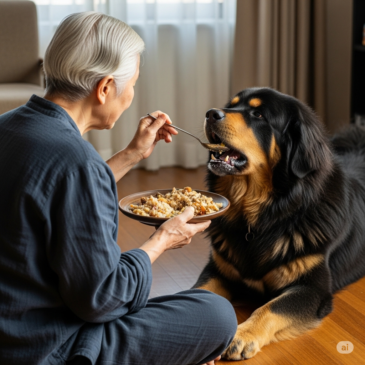
It was early—earlier than usual. I was heading to the kitchen for my coffee when I paused in the hallway. I heard Grandad speaking. Not just mumbling, but whispering as if he were sharing a deep secret with someone.
“Such a sweet ritual, wouldn’t you agree? Always making pancakes on Saturdays.”
I stood frozen, my ceramic mug forgotten in my hand.
My grandmother, Lillian, had passed away three years prior. She was the one who used to make him pancakes every Saturday. She’d wake early, mix the batter with a touch of vanilla and a hint of cinnamon, and serve them to him with fresh berries and maple syrup. He’d never once made them himself throughout their sixty-two years of marriage.
And yet, here he was. Preparing them. Talking to Barnaby.
That was the first time I felt the sharp prick of something profound. I desperately wanted to believe it was just a fleeting memory. Maybe the pancakes simply reminded him of her. Perhaps he found comfort in the pretense.
But it didn’t end there.
He started calling Barnaby “Lily” when he believed no one else was listening. He began to gently brush Barnaby’s thick coat with one of Grandma Lillian’s old hairbrushes. One afternoon, I discovered a pair of her reading glasses on his nightstand, resting beside a bag of dog biscuits.
I felt utterly lost as to what to do.
I confided in my mother about it, but she just looked weary. “If it brings him peace, let it be,” she said. “He’s not harming anyone.”
But it felt like a boundary had been crossed. Like something delicate inside him was coming undone, and no one wanted to face it.
Then came the night everything shifted.
It was late, and a heavy downpour had begun. Barnaby despised storms—always had. Typically, he’d hide beneath the sofa or pace anxiously until it passed. But that night, he remained steadfastly by Grandad’s side, unmoving, his eyes fixed on him as if he possessed some knowledge we lacked.
Around 2:30 AM, I heard a sharp bark.
I rushed downstairs and found Grandad on the floor, disoriented, a streak of blood on his forehead. He’d attempted to reach for a glass of water and lost his footing. Barnaby had barked so loudly, he’d roused the entire household.
The paramedics mentioned he might have lain there for hours if Barnaby hadn’t raised the alarm.
That night at the hospital, Grandad clutched my hand tighter than he ever had. He kept murmuring, “Lily saved me… she saved me again.”
And that’s when it truly dawned on me.
It wasn’t merely confusion.
It was devotion.
A part of Grandad had rewired itself to keep her essence near. In Grandma Lillian’s physical absence, he had poured every ounce of memory, tenderness, and unwavering loyalty into the creature who never left his side. Perhaps it wasn’t strictly rational. Maybe it wasn’t what a textbook would call healthy. But it was profoundly human.
The medical team referred to it as “reminiscence-based coping,” a blend of nostalgia and psychological preservation. They suggested cognitive therapy, but we all knew Grandad wouldn’t agree. He’d lived his life by his own code. He wasn’t about to start sharing his innermost feelings with a stranger in business casual.
So, we met him exactly where he was.
We began leaving small mementos for him to discover. Grandma Lillian’s antique pocket watch. A soft shawl she used to wear. My mom even started preparing pancakes using his old Saturday recipe, the one he always claimed was “nothing special” but secretly adored.
And Barnaby? He simply continued being Barnaby. He stayed.
A month later, I sat with Grandad on the back patio. The sun was dipping below the horizon, painting the sky with sweeping strokes of orange and purple. He looked serene, his hand resting gently on Barnaby’s head.
“I know he isn’t her,” Grandad said softly, his gaze fixed on the fading light. “But sometimes… sometimes when I talk to him, it’s like she’s replying.”
I didn’t know how to respond, so I simply nodded.
And then he added, with a faint smile, “She would’ve appreciated you being the one to understand.”
I blinked. “What do you mean by that?”
Grandad turned his eyes to me. “She always said you perceive things. Not just what’s directly in front of you—but what lies beneath it. You have her insight, you know.”
That moment lingered with me.
Not because it was earth-shattering or brought tears to my eyes, but because it felt like a crucial connection—between yesterday and today, cherished memories and enduring affection, sorrow and acceptance.
Grandad never stopped making pancakes for Barnaby. But he also started eating more himself. Laughing more. Conversing more.
And sometimes, just sometimes, I’d overhear him softly humming one of Grandma Lillian’s favorite old melodies under his breath.
These days, when folks ask me for advice on helping someone navigate sorrow, I share this very story.
Because grief doesn’t always manifest as tears or silence. Sometimes, it looks like fluffy pancakes and a dog named Barnaby.
